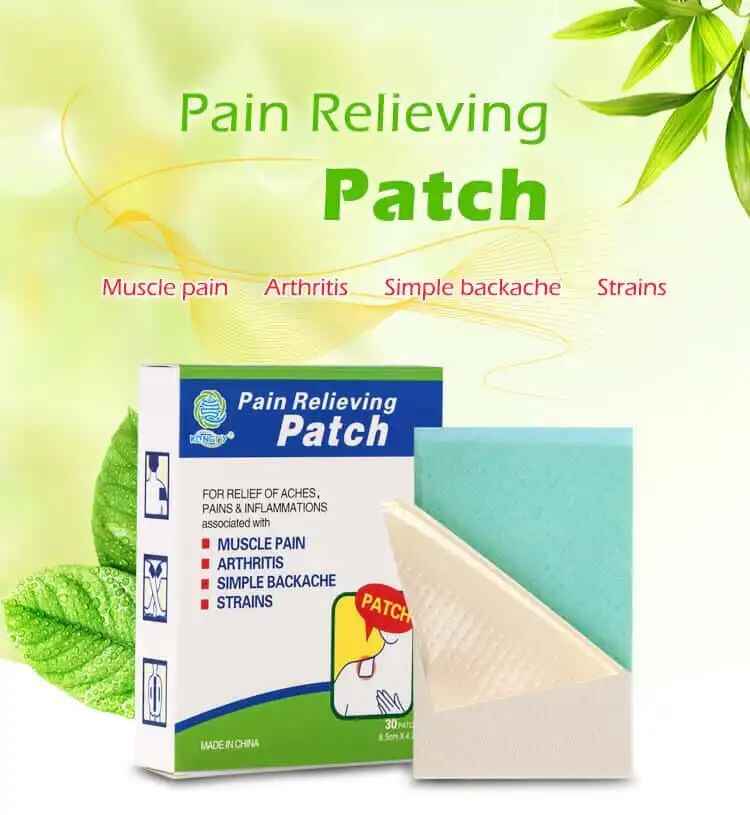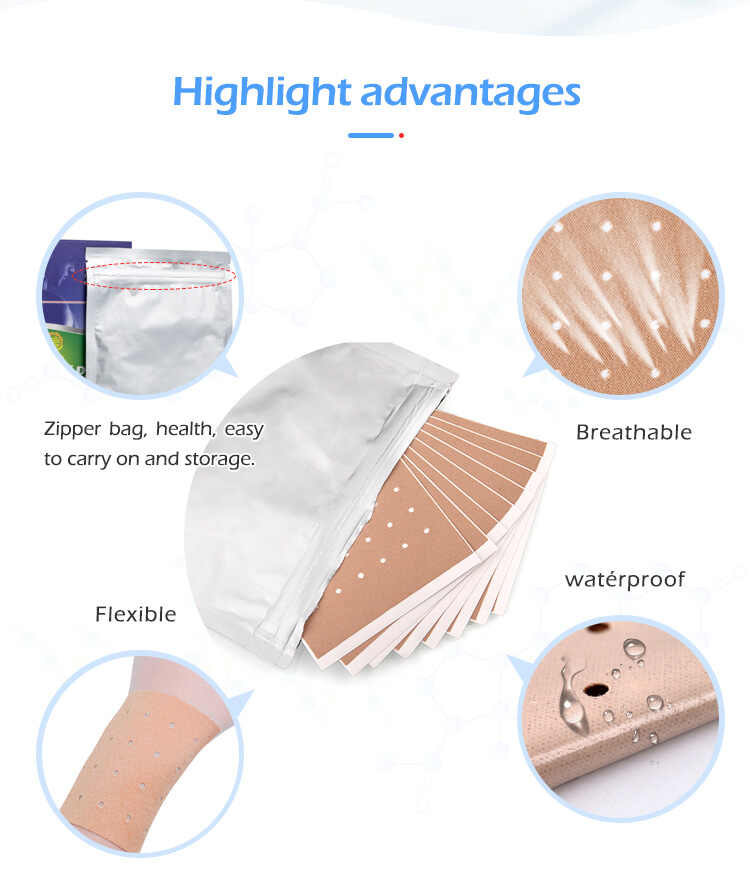How to Choose a High-Quality Chronic Pain Patches OEM Partner
In today’s competitive health and wellness market, chronic pain patches are a sought-after solution for long-term pain relief. Brands looking to enter or expand in this category often turn to Chronic Pain Patches OEM partners for scalable, customizable manufacturing. However, not all OEMs are created equal. Choosing a high-quality Chronic Pain Patches Manufacturer can make the difference between a trusted brand and one that fails to gain traction.
This guide will walk you through the critical factors to consider when selecting the right Chronic Pain Patches OEM partner to ensure your product line is safe, effective, and successful.

1. Understand the Role of a Chronic Pain Patches OEM
Before selecting a partner, it’s essential to understand what a Chronic Pain Patches OEM (Original Equipment Manufacturer) actually does. An OEM is responsible for:
Manufacturing patches according to your formulation or their standard formulas.
Assisting with Custom Chronic Pain Patches development.
Offering Private Label Chronic Pain Patches options.
Ensuring compliance with local and international regulations.
Acting as your long-term Chronic Pain Patches Supplier.
A reputable OEM partner goes beyond basic production—they support your brand’s growth with expertise, innovation, and scalability.
2. Evaluate the OEM’s Manufacturing Capabilities
One of the first things to examine is the manufacturer’s facility and technical capacity. A high-quality Chronic Pain Patches Manufacturer should have:
GMP-certified facilities: Good Manufacturing Practice certification ensures strict quality control.
Modern production lines: Automation, precision mixing, and sterile environments.
R&D support: Capability to create Custom Chronic Pain Patches to differentiate your product.
Large-scale production: Ability to scale with your growth without compromising quality.
Ask for a virtual tour or an in-person visit. If the manufacturer hesitates, that’s a red flag.
3. Check the OEM’s Experience and Reputation
Look for an OEM partner with proven experience in the field of chronic pain patch manufacturing. Consider:
How many years they have been a Chronic Pain Patches Supplier.
Client testimonials and third-party reviews.
Whether they specialize in pain relief patches or offer it as a secondary service.
Experience ensures they understand the nuances of Private Label Chronic Pain Patches, including formulation, skin compatibility, adhesion properties, and regulatory requirements.
4. Assess Product Customization Options
Customization can significantly impact your brand’s uniqueness. A forward-thinking Chronic Pain Patches OEM should offer:
Custom ingredients: Herbal, menthol, lidocaine, CBD, and other active ingredients tailored to your audience.
Patch size and shape: For optimal usability and coverage.
Adhesion technology: Breathable, hypoallergenic, or waterproof options.
Packaging customization: From logos and colors to eco-friendly materials.
When evaluating options for Custom Chronic Pain Patches, confirm that your OEM can support diverse formulations and delivery mechanisms.
5. Prioritize Regulatory Compliance and Certifications
Pain relief patches, especially those for chronic use, are closely regulated in many markets. Your Chronic Pain Patches Manufacturer must comply with:
FDA (for U.S. distribution) or CE (for EU markets) requirements.
ISO certifications, especially ISO 13485 for medical device manufacturing.
Stability and safety testing protocols.
Full documentation for Private Label Chronic Pain Patches regulatory submissions.
Compliance ensures your product avoids costly legal hurdles and builds consumer trust.
6. Review Quality Control Measures
An essential marker of a high-quality Chronic Pain Patches OEM is their commitment to quality control (QC) and quality assurance (QA). A professional OEM should offer:
Batch traceability.
Incoming and outgoing ingredient inspections.
Routine microbial and stability tests.
Strict process documentation and SOPs.
Don’t hesitate to ask about their QC protocols or request lab reports to verify product consistency and safety.
7. Discuss Minimum Order Quantities (MOQs) and Flexibility
Every brand has a different budget and scale. While some Chronic Pain Patches Suppliers cater only to large enterprises, many high-quality OEMs now offer:
Low MOQs for startups.
Scalable pricing models as your orders increase.
Flexible contract manufacturing with seasonal demand planning.
Choose a partner whose pricing model aligns with your growth trajectory.
8. Evaluate Communication and Customer Support
Clear and timely communication is often the deciding factor in long-term success. Key indicators of a dependable Chronic Pain Patches OEM partner include:
Dedicated account manager or project coordinator.
Transparent pricing and production timelines.
Fast response to product revisions or urgent inquiries.
Regular progress updates and sample shipments.
Strong communication ensures smoother product launches and fewer costly misunderstandings.
9. Explore Their Private Label Capabilities
If you're planning to enter the market quickly, Private Label Chronic Pain Patches can be the ideal solution. With pre-formulated, ready-to-brand options, private labeling allows:
Faster time-to-market.
Lower upfront R&D costs.
A reliable way to test new markets.
Make sure the Chronic Pain Patches Manufacturer offers a comprehensive private label program that includes packaging, branding, and regulatory support.
10. Request Samples and Conduct Product Testing
Never commit to large production runs without testing the product yourself. A credible Chronic Pain Patches Supplier will be happy to provide samples for:
Skin adhesion and removal comfort.
Scent, texture, and visual appeal.
User experience over extended wear time.
Performance in relieving chronic pain symptoms.
Product testing ensures your customers receive the quality and performance they expect.
11. Compare Pricing vs. Value
While price is important, it shouldn’t be the only factor. A lower-cost Chronic Pain Patches OEM may cut corners in:
Ingredient quality
Safety testing
Batch consistency
Customer support
Weigh the total value, not just the unit price. High-quality OEM partners may charge slightly more, but the return on investment comes through brand loyalty, fewer returns, and better reviews.
12. Evaluate Long-Term Partnership Potential
Think beyond your first order. A reliable Chronic Pain Patches Manufacturer will be a long-term ally in:
Introducing new product lines.
Navigating global regulations.
Adapting to consumer trends.
Scaling with market demand.
Ask about their product roadmap and ability to support your brand as it evolves.
Conclusion
Choosing the right Chronic Pain Patches OEM partner is a strategic decision that impacts your product quality, brand reputation, and long-term success. By thoroughly evaluating manufacturing capabilities, compliance, customization, and support, you can confidently select a partner that aligns with your business goals.
Whether you’re launching a new line of Private Label Chronic Pain Patches or developing Custom Chronic Pain Patches, the right OEM can turn your vision into a market-ready reality.
Related Questions & Answers
Q1: What is the difference between Custom Chronic Pain Patches and Private Label Chronic Pain Patches?
A: Custom patches are developed from scratch based on your specifications, while private label patches use existing formulations with your branding.
Q2: How do I know if a Chronic Pain Patches OEM is FDA compliant?
A: Request to see their FDA registration and documentation of compliance for medical device or drug manufacturing.
Q3: Can a Chronic Pain Patches Supplier help with international distribution?
A: Yes, experienced suppliers often assist with regulatory compliance for different regions and may offer logistics support.
Q4: What ingredients are commonly used in Chronic Pain Patches?
A: Common ingredients include menthol, lidocaine, capsaicin, CBD, and herbal extracts for long-term pain relief.
Q5: How long does it take to launch a product with a Chronic Pain Patches OEM?
A: For private label patches, it may take 2–6 weeks. Custom formulations can take 3–6 months, depending on complexity and approvals.
Q6: Are there eco-friendly options for Chronic Pain Patches packaging?
A: Yes, many OEMs now offer biodegradable, recyclable, or minimalistic packaging for sustainable branding.






